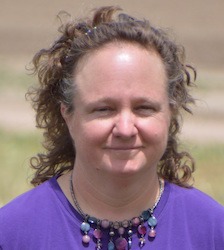How to Start Over After Making a Testing Mistake

Summarize with AI:
Making mistakes is part of life, including work. Here’s how (and why) to own up and move on so you can recover your professional credibility and confidence.
Software testing mistakes happen as they do in most professional positions. Mistakes happen to everyone at some point during the span of a career. The more projects you test with unorganized processes, poor requirements or ineffective communication, the increased likelihood of one or multiple mistakes.
For example, most Agile teams make a point of team members practicing accountability. Part of accountability is being honest when you make a mistake and working toward a solution to prevent the error happening again in the future.
When testers make mistakes, it’s hard not to feel guilty, nervous about job status or simply horrible for the flub-up. The good news is making mistakes is a fact of life as a professional tester. It’s what happens afterward that determines if you bounce back.
This guide describes the importance of accountability, being honest about mistakes, and how to recover professional credibility and confidence.
What is Accountability?
Accountability is embracing your mistakes, making them public and experiencing the learning that comes from them. As a software tester, being responsible and accountable requires honesty and professional integrity. Testers must fight the urge to disappear into the background or direct blame elsewhere. The impact of the mistake passes faster when you focus on future prevention and remain open, honest and fully accountable.
It takes professional courage to admit a mistake. Sometimes it’s the mistakes that guide your career path and contribute to your testing expertise. Making a mistake may force you to slow down and concentrate more closely on testing. Mistakes may convince a tester to be bold and ask as many questions as necessary. Regardless of the size or impact of the mistake, the important part is to move forward. During your testing career, you’ll experience management and business process failures more than once. Many of those may be the root cause of the mistake you make. It’s important to acknowledge the mistake and fix it by moving forward. Find a resolution, correct what you can and then create solutions that keep the mistake from happening again.
When that sinking feeling of dread sinks in, and you realize you made a testing mistake take steps to acknowledge it to your peers and development team. When acknowledging a mistake, don’t torture yourself, quit or put yourself down. Just detail the mistake, how it happened and how you intend to address the problem so it doesn’t happen again. Acknowledging and accepting responsibility for mistakes is practicing professional accountability.
Why be Honest About Mistakes?
Wouldn’t it be easier to attempt to disguise the mistake, run away from it or blame someone or something else? No. Mistakes are normal, even though when we make mistakes at work we feel our livelihood is immediately threatened. Mistakes are a learning opportunity for professional growth when they are acknowledged, accepted and corrected.
If you attempt to be dishonest about mistakes, the truth will eventually come out. How do you think that makes you look as a team member? Accountable? No. Dishonest and possibly conniving? Yes.
Strong and productive software development teams are built on trust between team members including software testers. Effective software testing teams operate more effectively and efficiently where trust between team members exists. Don’t destroy the trust you’ve built up by trying to cover mistakes. Be accountable, learn and move on.
Think of it this way. Why do development need software testers in the first place? To find defects or mistakes before customers experience them. Why do newspapers employ editors? For the same reason—to find mistakes writers make in copy and correct them. Mistakes are part of work life and honesty is the best policy.
How Do You Regain Your Composure, Credibility and Confidence?
Although everyone makes mistakes at work, it still feels terrible when it happens. It’s difficult not to let fear keep you from moving forward or taking on risk. Don’t let mistakes hold you back. It’s important to work toward regaining your confidence and testing credibility.
By moving on, you are working on repairing your testing credibility and the dent in your testing confidence. Testing mistakes may temporarily impact your career path and undermine your confidence. Learn from mistakes and grow your testing experience rather than letting mistakes ruin your work life.
Steps for rebuilding your confidence and testing credibility include:
- Be accountable and own your mistake.
- Apologize once and let it go.
- Take the heat with grace and professionalism.
- Learn from the mistake.
- Work toward correcting the mistake and preventing future mistakes.
- Keep testing in a dedicated, passionate and detail-orientated manner.
- Focus on moving forward with your testing.
- Don’t forget the mistake, but move past it and continue learning.
- Brainstorm ways to prevent mistakes in the future with your team.
- Resist the temptation to blame.
- Take corrective action to prevent future mistakes.
- Forgive yourself and get back to testing.
Rebuild confidence and credibility by moving forward. Mistakes happen frequently in software development, so if the spotlight is on your mistake now, wait a moment and it’ll move to some other lucky soul. One mistake doesn’t have to derail your career. Failure is part of life, as is your response to it. Demonstrate professionalism and resilience and get back to work.
Remember that making mistakes is a fact of professional testing life. Everyone remembers a time when they wished they’d stopped and double-checked a test result or stopped trying to multitask during test executions. Yes, mistakes feel horrible, but as long as you learn from them and move on, you’ll continue your professional growth in a positive direction.
Need a testing tool that can help software testing teams be more productive? Check out Progress Telerik Test Studio and see how it can help organize your software testing and help you prevent mistakes the first time around.

Amy Reichert
A QA test professional with 23+ years of QA testing experience within a variety of software development teams, Amy Reichert has extensive experience in QA process development & planning, team leadership/management, and QA project management. She has worked on multiple types of software development methodologies including waterfall, agile, scrum, kanban and customized combinations. Amy enjoys continuing to improve her software testing craft by researching and writing on a variety of related topics. In her spare time, she enjoys gardening, cat management and the outdoors.

